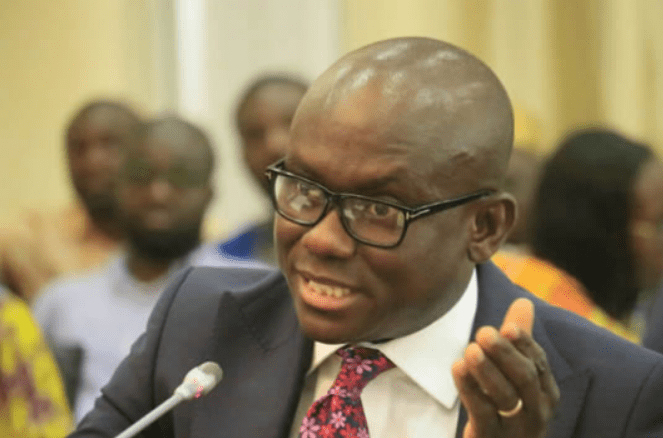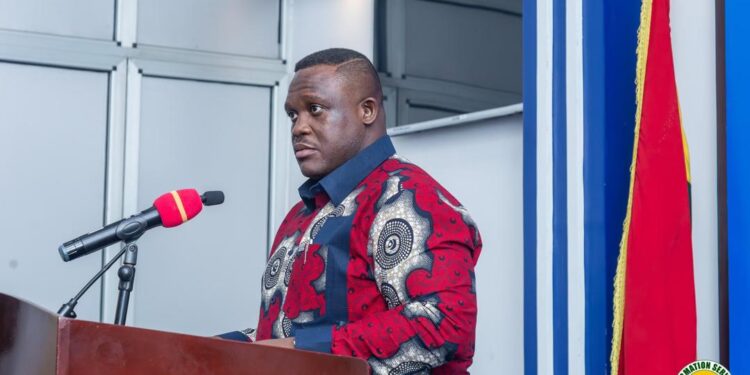According to Ben Boakye, Executive Director of the Africa Center for Energy Policy (ACEP), the government failed to heed ACEP’s warnings regarding the unitization of the ENI Ghana, Vitol, and Springfield fields, despite their concerns.
He noted that in a letter dated July 2021, ACEP cautioned President Akufo-Addo against pursuing unitization without seeking independent advice, however, his letter went unheeded, and his warnings about the unitization of the oil fields fell on deaf ears.
Boakye lamented that his advice was utterly disregarded, leading to Ghana’s entanglement in a costly and unnecessary legal dispute.
“We didn’t receive any response from the President…When we saw and heard the action from the ministry, the AG, and the rest of it, we thought that there was a need for some interventions above those organs or agencies”.
“From where we sat and the technical people that we have spoken to including many Ghanaian engineers who have worked with EXIM Mobil, they worked with BP, and all of them thought this was laughable and an embarrassing situation for Ghana to go through”.
Ben Boakye
Boakye explained that ACEP’s goal was to alert the President to the potential risks, thereby preventing the current situation and avoiding a costly legal battle that the government might otherwise face.
He noted that, in the intervening periods, ACEP had observed the claimants making overtures to the state, assuming that the individuals handling the matter lacked a thorough understanding of the technical details involved.
According to Boakye, the claimants had reached out to the President and various individuals, but the government and its officials remained ineffective and unable to move forward.
He noted that ACEP thought it could write to the President to highlight the issue, even if the President doesn’t believe what ACEP and others are saying, but rather encourage him to take a second look, beyond the views of his ministers and agencies.
“Look for third-party advice and be able to address this matter in a way that sustains the oil industry, the way we had projected it and wanted it to go. And we also pointed out the risks involved… We thought we could write to him and get some response that would protect the interest of the state, it was just a good-faith communication to the President. We never got a response for it”.
Ben Boakye
ACEP Boss Disputes Government’s Claim Of Victory,
Furthermore, Ben Boakye denounced the government’s unitization directive as misguided and “wrong-headed”
Boakye vehemently disagrees with the Attorney General’s claim of Ghana’s victory, instead, he describes the judgment as a “technical knockout” for the government.

According to the ACEP boss, the government’s case for unitizing the oil fields was scientifically flawed, lacking concrete evidence and failing to demonstrate a strong necessity for unitisation.
He noted that by failing to present robust evidence, the government inadvertently strengthened the oil companies’ position, leading to a ruling in their favor.
“Essentially, the fact of the matter is that ENI didn’t go to court to say that Ghana has stolen its $7 billion, and they want it back. They went to court to say that Ghana had acted unlawfully and interpreted its laws wrongly by issuing the unitisation directives, without fulfilling the scientific evidence that will justify unitisation. I think that is essentially before the court”.
“For me, the substantive case is what we should be focusing on, what took Ghana, ENI, and Vitol to court to intervene on this matter. It was a simple fact that Ghana acted wrongly in unitizing when our laws [are not enforced]”.
Ben Boakye
Boakye pointed out that while Ghana’s laws grant the right to unitize, the government misunderstood the specific circumstances that trigger this right.
He noted that what activates that right is a scientific body of evidence suggesting that unitization of the fields is necessary, but Ghana failed to provide that evidence, which is why the country lost the case.
READ ALSO: Dr Abdallah Explains Reasons Behind Financial Struggles by Actors After Retirement





















